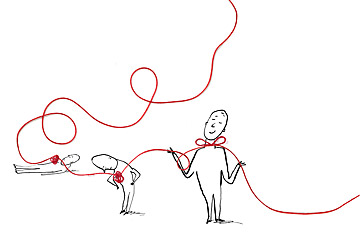
(6 of 7)
The genetic piece of the puzzle may be even more complex than just the genes your parents were born with and pass on to you. Mom's and Dad's experiences with stress and anxiety and how they react to them can leave a genetic legacy in the form of how intensely certain genes are turned on or off. Studies of male mice that had offspring both before and after being stressed (by being socially isolated from their peers) showed that the litters born to the males after the traumatic experience displayed more anxious behaviors than those born before. What's more, when nervous pups born to a nervous dad experienced some kind of trauma of their own, they reacted to it more negatively than normal baby mice would.
Such partly genetic, partly experiential dynamics may be at play in the human species too--and might explain the 85% of combat troops who are spared from PTSD. "The condition of the brain at the time of a stressful experience probably plays a critical role in whether somebody develops an anxiety disorder like PTSD or not," says Abelson.
Fixing What Ails You
One happy fact for anxiety sufferers is that the very same system that drives anxiety in our stimuli-saturated world may also be our salvation. Because the anxiety circuits are built to bridge the emotional and cognitive parts of the brain, it's possible to train ourselves out of a certain amount of anxiety with what therapists call habituation. Babies who cry or become tense when they hear a car horn or a thunderclap eventually learn that nothing dangerous follows the sound and thus learn to acknowledge but not react to it. Cognitive behavioral therapy (CBT) helps patients learn the same lesson.
People with a phobia of, say, spiders will often react with fear and anxiety to a picture of one or simply the thought of one--never mind an encounter with the genuine crawly article. Learning to control the anxiety involves gradual exposure to spiders, from least scary circumstances to most, with the brain--and thus the body--growing sequentially desensitized with each encounter. Similarly, patients with OCD practice what is called exposure and response prevention. If your obsession is germs, your treatment might consist of touching a doorknob or the sole of your shoe and then resisting familiar undoing behaviors like washing your hands. It's not about feeling anxious but about finding ways to react effectively.
"What is important is your appraisal of the situation and your assessment of your coping strategies," says Diego Pizzagalli of Harvard Medical School, director of the Center for Depression, Anxiety & Stress Research at McLean Hospital. "If you perceive you can cope, you will not feel as stressed."
